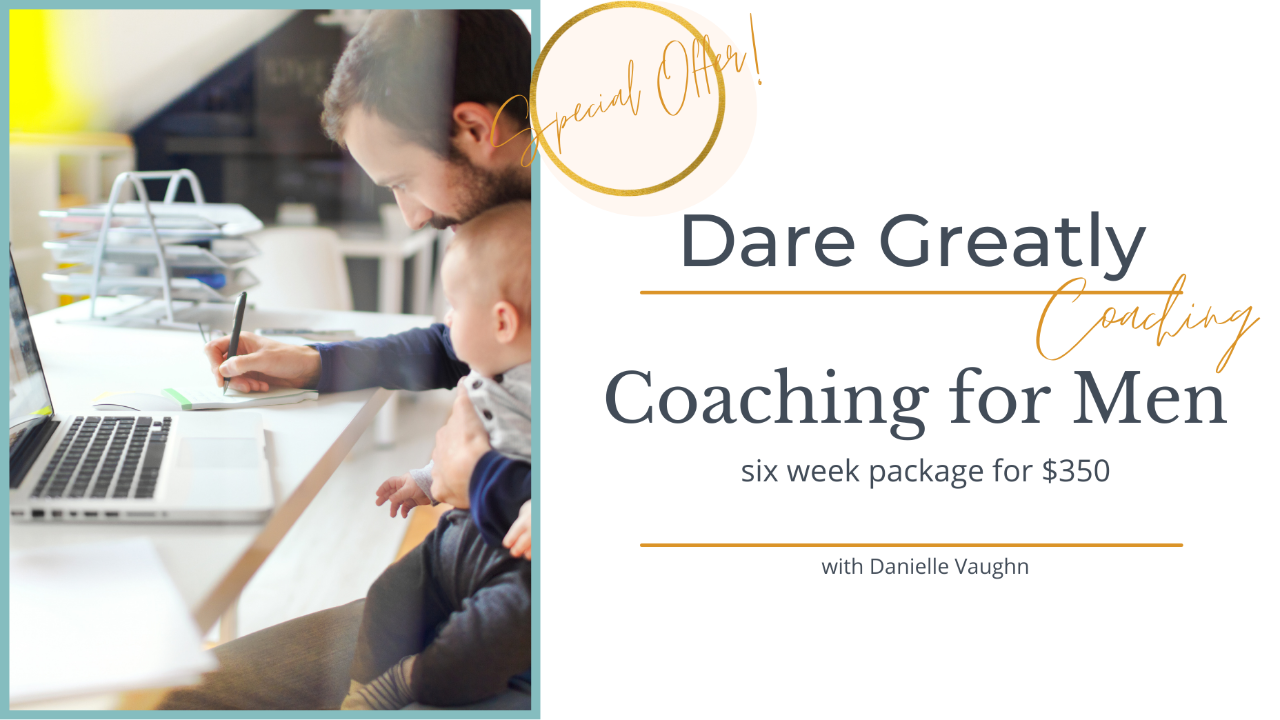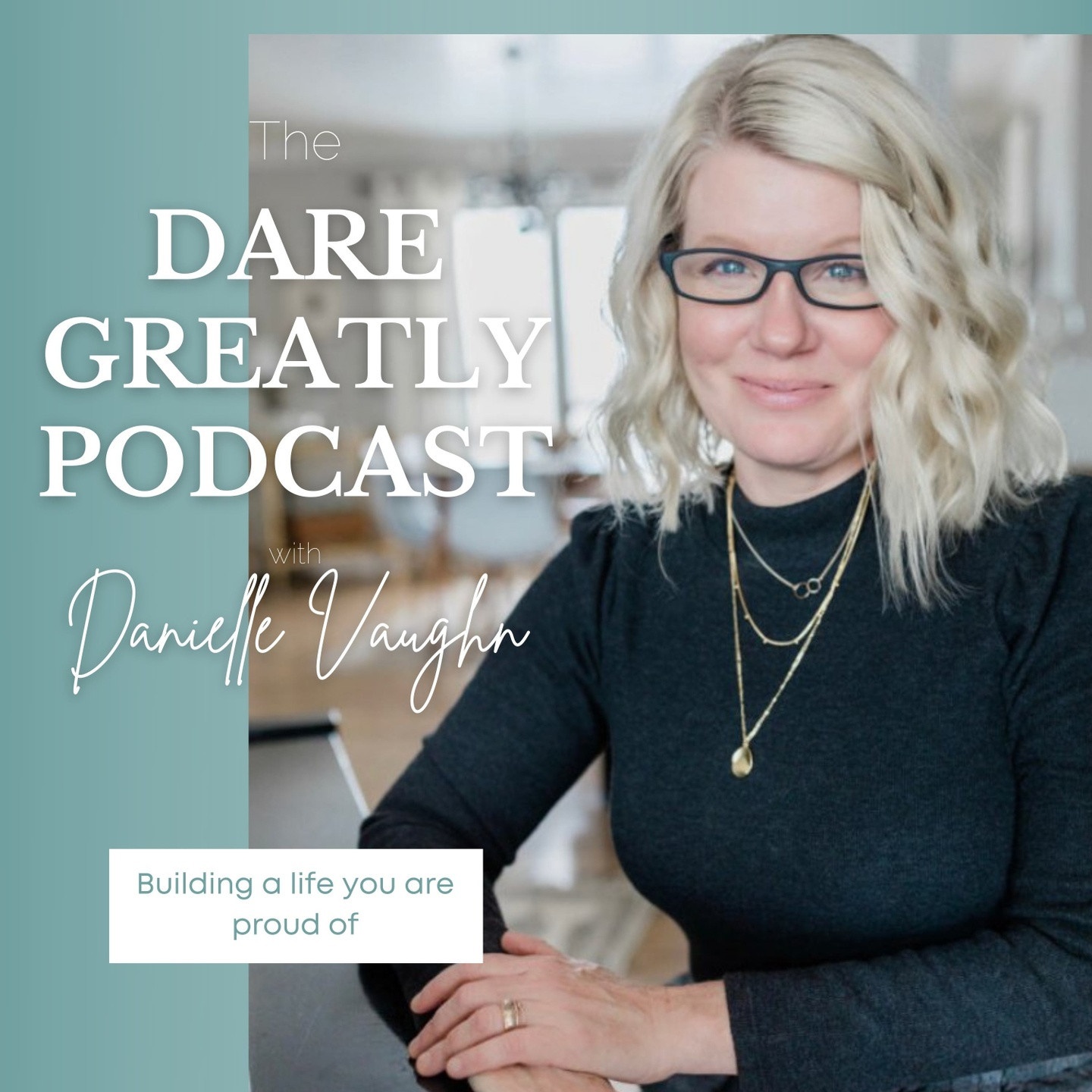Life Coaching for Men

Growing up, your man may have never witnessed an adult who could regulate their emotions. I hear this more often than not from the men I’ve coached. Maybe they saw yelling, maybe the silent treatment, and maybe even complete avoidance.
What happens is we learn the way to deal with uncomfortable emotions is to well, not deal with them.
Often, if this is the childhood experience the man in your life has had, he will view small situations as a crisis and complete chaos. He may have saw shame stop him from speaking up about the realities going on around him, and never feeling like he could trust that his emotions were safe.
He might have learned that what people thought and that the intellect was more important than how he felt.
If so, then He learned codependency, enabling, and overachieving, and overprotecting was love.
There comes a time when he will want to try a different way of living for himself and the family he’s creating. But he won’t know how.
He’ll feel helpless, and that will terrify him.
And this isn’t just true for men. It’s true for women too.
No matter where you come from or how you were raised, it only takes one person in the family to be a cycle breaker and to wake up from the fog, and to face the truth.
If you want better for yourself and for your family, it will take some humility, the kind that is willing to do the work rather than live in denial or blame.
All of us can consciously create the life we choose and we can choose to self heal.
This work isn’t weak in any way. In fact, it takes a lot of strength and a lot of courage.
When we say yes to this kind of self healing, we’re learning how to create true partnership with other humans.
We may have even been punished for wanting this and not even remember that, but the central nervous system remembers. And if there’s anything in the current family or partnership dynamic that reminds the central nervous system what it was like when we felt unsafe, the central nervous system will override the intellect and take over and we will revert into fight or flight behaviors before we are aware of what we are doing.
So I want to share a little more of how I help men do this in particular. Because honestly, I have a different approach with men, and a lot of compassion for the men. I do for the women too, I really do, but the men, because I see the men in my own life who’ve had to do the best they can with what they’ve been given, and they carry it all on their shoulders, their backs, and it can really weigh them down. And men don’t talk to each other like women do - they have to be strong.
So I want to share with you what I do to help the men I work with when they’re in fight or flight mode, and they don’t know how to get out of it:
#1) I start by comparing emotional health to physical health. And the reason I do this is because we understand physical health so much better than we do emotional health. Most of us understand the benefits of exercise, strength-training, and eating healthy. And most of us know what will happen if we don’t exercise, if we don’t strength-train, and if we don’t eat healthy, we’ll get sick, or weak, or out of shape.
Most of us know the basics of a solid physical health foundation.
But if I were to ask you: what are the basics of a solid emotional health foundation? Many of us wouldn’t know how to answer.
So that’s where I start. The basics: which are:
- Identifying if you are safe, most often the circumstance is yes
- Identifying if you feel safe, most often the answer here is no….
- Identifying where you feel the emotion in your body.
#2) The second thing I teach men is the difference between a circumstance and a thought. Many of you who have listened and followed along know that I teach how important of a difference this is to know - a circumstance is a fact, something that exists outside of you, you can’t control, and it is the math of your story. Circumstances are something everyone would agree upon, they are just the facts without any emotion.
But a thought is completely different, we have lots of thoughts about our circumstances, and we’re going to want to be aware of how we’re thinking about our circumstances, and what we’re making our circumstances mean.
#3) Thoughts create feelings, except for when the nervous system is running the show.
And so the first two lessons need to be understood before we get into this third lesson. And we’ll spend some time unpacking how emotions are playing out in their lived experiences, and we’ll unpack the thoughts around their current circumstances.
As a life coach helping men learn how to self-heal, I help men support their own self-healing and explain the neuroscience of why awareness, thoughtwork, and similar practices can promote self-healing and healthy emotional processing in a number of ways:
So let’s break down briefly, eight ways coaching and thought work helps self-healing:
- Stress Reduction: Coaching and mindfulness practices have been shown to reduce the body's stress response, including the release of cortisol and other stress hormones. Chronic stress is a common factor in emotional dysregulation or trauma, and reducing stress can help the body and mind heal.
- Neuroplasticity: The brain has the ability to rewire itself through a phenomenon called neuroplasticity. Engaging in practices like thought work, journaling, talking with a mental health expert, and deep breathing can positively influence the brain's structure and function, supporting emotional healing and resilience.
- Mind-Body Connection: Coaching encourages a strong mind-body connection. It enhances interoception, the ability to sense what's happening inside your body, which is important for recognizing and processing emotions. This awareness can help individuals navigate and heal from emotional trauma.
- Emotional Regulation: Coaching and mindfulness practices can enhance emotional regulation by activating the parasympathetic nervous system (the "rest and digest" system) and decreasing activity in the sympathetic nervous system (the "fight or flight" system). This shift promotes emotional stability and healing.
- Release of Neurotransmitters: Engaging in thought work and coaching can lead to the release of feel-good neurotransmitters like endorphins and serotonin. These neurochemicals play a crucial role in mood regulation and can support emotional healing.
- Reduction in Ruminative Thinking: Thought work and journaling practices often promote present-moment awareness, which can reduce ruminative thinking patterns associated with looping in the past and feeling stuck. This shift in focus can lead to healthier emotional processing.
- Social Connection: Many coaches and mindfulness groups provide a sense of community and social support so men don’t feel all alone in the burdens they carry. Social connections are essential for emotional healing and recovery from trauma.
- Resilience Building: Consistent coaching and mindfulness practices can enhance an individual's ability to bounce back from emotional challenges and build resilience.
And so what will happen over time through coaching, is men will start to connect the dots with how they experience emotions, and from there, we’ll decide three things:
- How do you want to show up in this circumstance in your life?
- Do you want to change your circumstance?
- Who do you want to be when you’re feeling certain difficult emotions?
And these three questions will take some time to answer. But when they can answer them in a robust way, they start to feel really empowered.
They are learning how to self-regulate and how to self-heal.
And so I wanted to share this with you today, because I want to invite you to share this with the man in your life if you think he might benefit from coaching, or want to work with me and learn how to self-regulate in the way I’ve described.
I love to answer your questions. I am on Instagram often. Connect with me there or even better, send me an email at [email protected], you can also join my Dare Greatly community by joining here where I have my newsletter signup.
Limited time offer: Coaching for Men six week package for $350. Sign up here.





